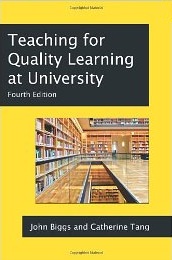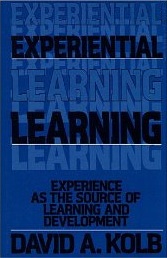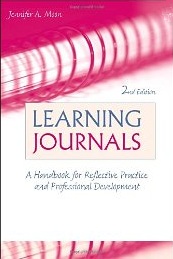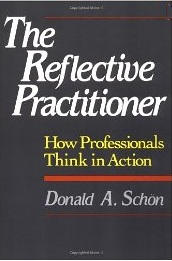

By three methods we may learn wisdom: first, by reflection, which is noblest; second, by imitation, which is easiest; and third by experience, which is the bitterest.
Confucius (551 BC - 479 BC) Chinese Philosopher
What is Reflective Practice?
Introduced by Donald Schon in 1987, reflective practice involves thoughtfully considering your own experiences as you make the connection between knowledge and practice, under the guidance of an experienced professional within your discipline (Schon, 1996) Schon had previously argued (1983) that the model of professional training that relied upon filling up students with knowledge then sending them out into the world of practice was inappropriate in a fast-changing world. A reflective practice model would enable learners and novices within a discipline to compare their own practices with those of experienced practitioners, thus leading to development and improvement.
Although given currency by Schon (1983) and Kolb (1984), reflective practice has been advocated by educationists such as Dewey (1909) and Lewin (1952) and can be traced back to the Socratic method of enquiry - in which questioning and exploration of the implications of another's viewpoint are employed to enlighten the enquirer.
Moon (1999) defines reflective practice as "a set of abilities and skills, to indicate the taking of a critical stance, an orientation to problem solving or state of mind." In essence, it is a readiness to constantly evaluate and review your practice in the light of new learning (which may arise from within the context of your professional practice).
After its introduction, many colleges started to incorporate reflective practice into their education and professional development programmes.
Ojanen (1993) has proposed that using students' personal histories, dialogue journals and the use of group discussion about their experiences is the most effective way of helping students reflect on and improve their practices.
Kettle and Sellars (1996) found that students involved in peer reflective groups were more likely to challenge their own preconceived notions of teaching. Additionally, they suggested that such groups modelled a collaborative style of learning that would stand them in good stead throughout their teaching careers.
What are the benefits of reflective practice?
The main benefits are:
-
a deeper understanding for teachers of their own teaching style
-
greater effectiveness as a teacher
-
validation of the teacher's ideals
-
beneficial challenges to traditional approaches
-
recognition of teaching as "artistry"
-
respect for diversity in applying theory to classroom practice.
Boud and Walker (1998) noted various shortcomings in the way that colleges were applying reflective practice. They criticised:
-
"reflection on demand" mentality
-
reflection processes with no link to conceptual frameworks
-
failure to encourage students to challenge accepted teaching practices (who might assume that the more experienced practitioner must "know best")
Boud and Walker were also critical that the level of personal disclosure required might be beyond the capacity of some novice teachers. They point out that "it is common for reflection to be treated as if it were an intellectual exercise - a simple matter of thinking rigorously. However, reflection is not solely a cognitive process; emotions are central to all learning." (1998: 194) Boud and Walker suggested that teacher-coaches who created an environment of trust would be better at establishing a context in which useful reflection could take place.
Reflective practice can also be defined in terms of action research, whereby specific problems (in specific settings) are targeted and a continuous feedback mechanism established in order to inform ongoing development of practice (Hopkins and Antes, 1990)
References
Boud, D and Walker, D (1998) "Promoting reflection in professional courses: The challenge of context." Studies in Higher Education, 23(2) 191-206
Hopkins, C D and Antes, R L (1990) Educational Research: A structure for inquiry. 3rd Ed. Itasca, Illinois: F. E. Peacock.
Kettle, B and Sellars, N (1996) "The development of student teachers practical theory of teaching." Teaching and Teacher Education, 12(1) 1-24
Kolb, D (1984) Experiential learning: experience as the source of learning and development. London: Kogan Page
Moon, J (1999) Learning Journals: a handbook for academics, students and professional development. London: Kogan Page
Lewin, K (1952) Field theory in social science. London: Tavistock
Ojanen, S (1993) A process in which personal pedagogical knowledge is created through the teacher education experience. Paper presented at the International Conference in Teacher education, Tel-Aviv, Israel. ERIC Document: ED 398 200
Schon, D A (1983) The reflective practitioner: how professionals think in action. Boston: Arena Publishing
CLICK HERE - Facilitating Reflective Practice



